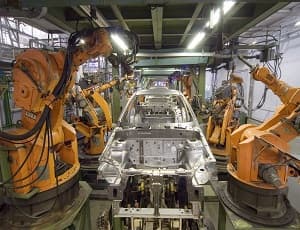China's High-Tech Manufacturing Dominance Sparks Western Competition Concerns

Western executives returning from recent trips to China are reportedly expressing a mix of "awe and fear" over the country's advanced manufacturing capabilities, highlighting a significant shift in the global industrial landscape. Factories in China are now described as highly automated and efficient, eclipsing many Western plants, according to a recent social media post by user Chubby♨️. This sentiment underscores a growing recognition that China has evolved from a low-cost production hub into a high-tech powerhouse.
The core of this transformation lies in China's rapid advancements across several key sectors. The tweet specifically noted China's innovation in robotics, electric vehicles (EVs), and clean manufacturing. This aligns with recent reports indicating that China installed nearly 300,000 new industrial robots last year, surpassing the rest of the world combined, and its factory automation market is projected to reach $39.5 billion in 2024, expanding to approximately $98.7 billion by 2032.
China's strategic initiatives, such as "Made in China 2025" and the "AI + Manufacturing" roadmap, have fueled this growth. These policies prioritize integrating artificial intelligence, advanced robotics, and industrial IoT to create "smart factories" capable of high-precision, data-driven operations. Shanghai, for instance, aims to integrate AI solutions across 3,000 manufacturing enterprises by 2027, with a focus on new energy vehicles, aerospace, and biomedicine.
In the electric vehicle sector, China has become a global leader, producing an estimated 10 million EV units in 2024 and accounting for 62% of global EV production in 2022. Chinese companies like BYD and CATL dominate EV battery manufacturing, holding approximately 75% of the global market share. This dominance is driven by significant investment in R&D, with Chinese firms making breakthroughs in battery chemistry and vehicle integration, offering competitive and technologically advanced models.
The "green leap" in China also extends to clean manufacturing and renewable energy. The country is rapidly scaling up solar, wind, and other climate technologies, installing 356 GW of new wind and solar power capacity in 2024 alone. This focus on sustainable manufacturing, coupled with advanced automation, has led to concerns among Western executives about their ability to compete effectively in a race where China "now seems to be running faster and smarter," as stated in the tweet.